Food Waste Intervention Action Planning Workshops for Taal Vista Hotel and Pico De Loro
November 2018
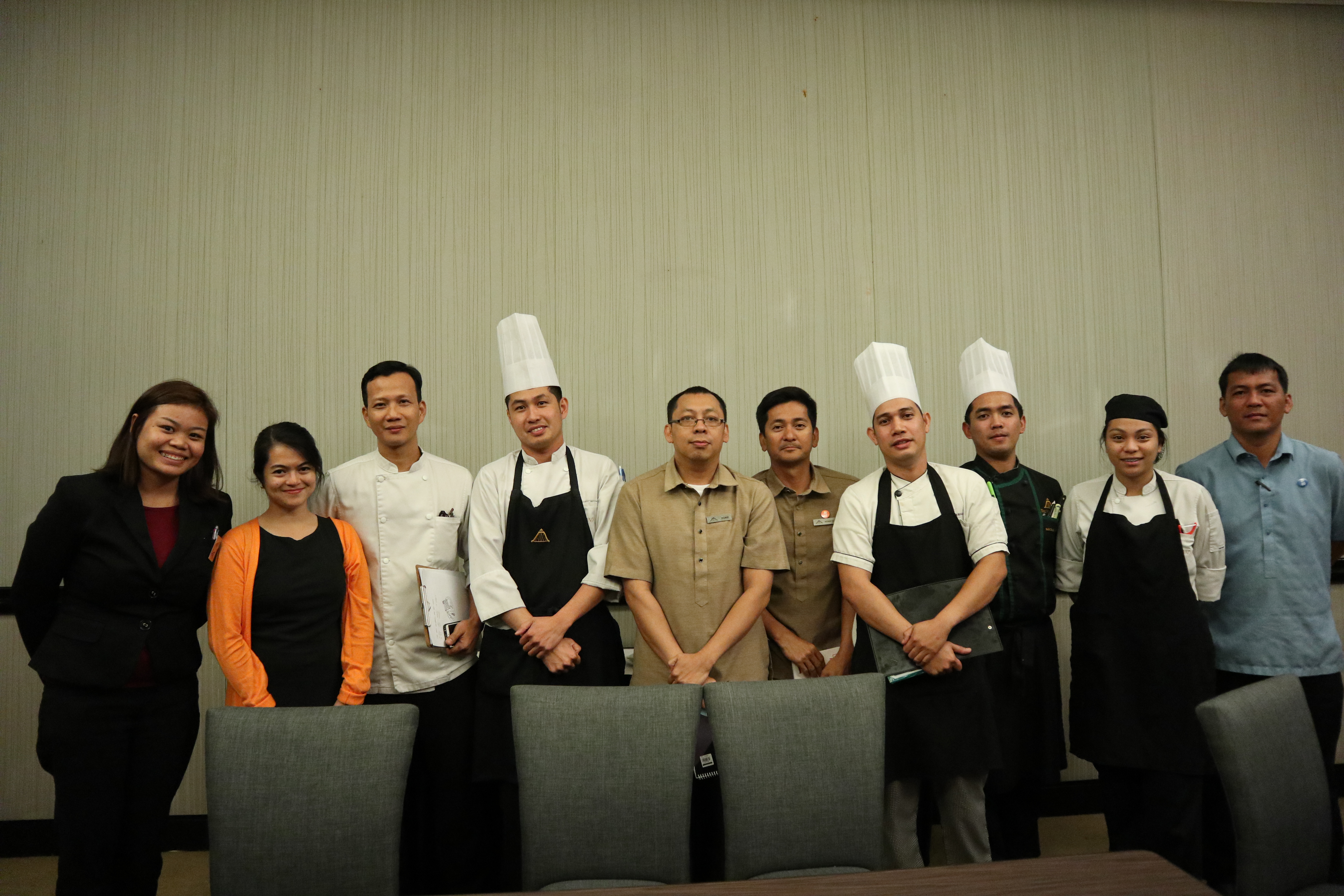
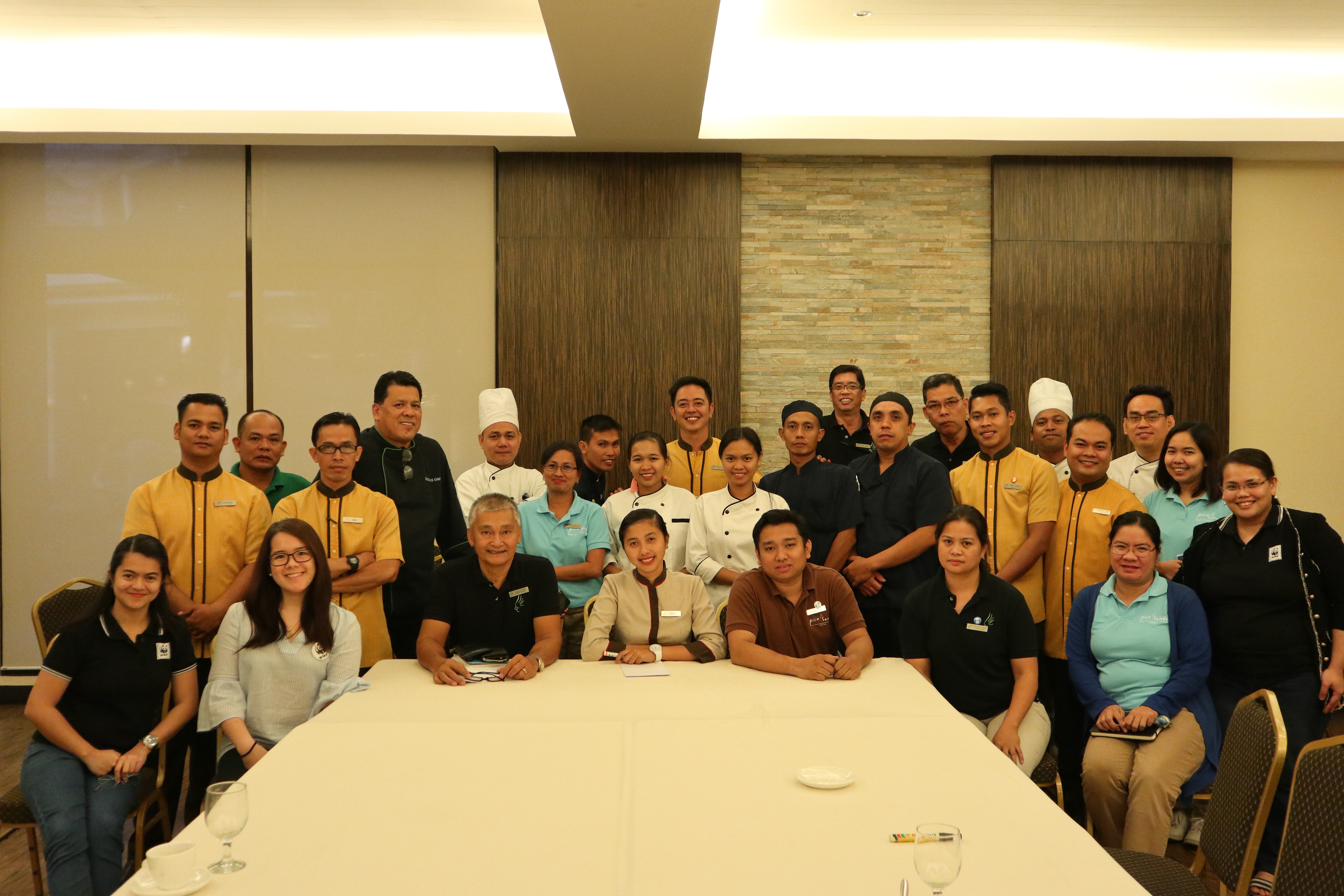
Throughout November, intervention action planning workshops were conducted in both Taal Vista Hotel (top) and Pico De Loro Beach and Country Club (bottom), attended by staff involved in their food waste management processes and operations. Photo © Gabriel Villalon and Lorayne Roque / WWF-Philippines
World Wide Fund for Nature (WWF) Philippines’ The Sustainable Diner: A Key Ingredient for Sustainable Tourism project conducted two food waste intervention action planning workshops this November for two properties under the SM Hotels and Conventions Corporation (SMHCC). Said workshop was conducted at the Pico De Loro Beach and Country Club last November 9 and at Taal Vista Hotel last November 29. For both runs, representatives from different departments - Kitchen, Service, Purchasing and Receiving/Cost Control, Hygiene, Stewarding - joined the project team for a half-day session on food waste data sharing and interventions brainstorming and presentation.
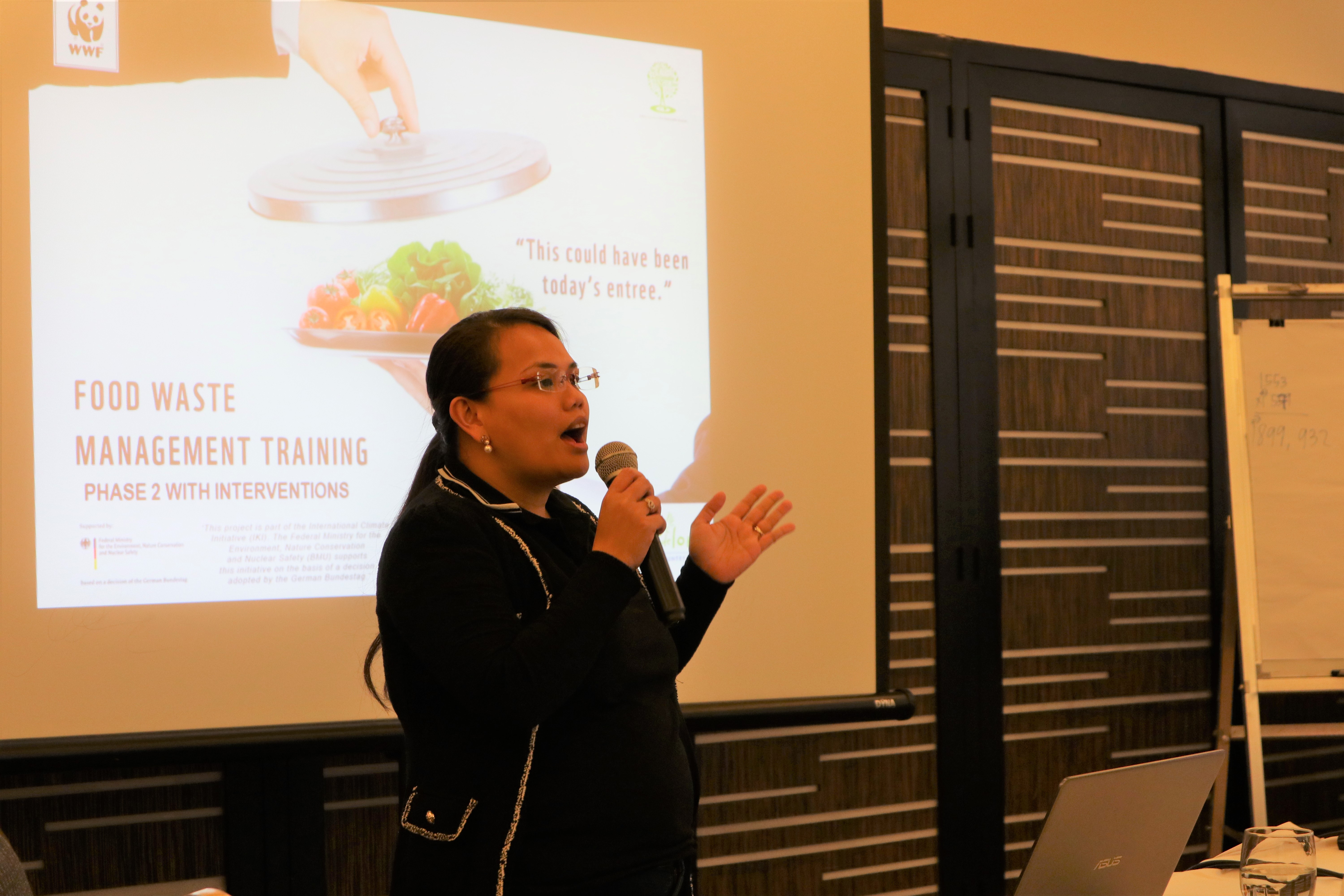
WWF Project Manager for Sustainable Consumption and Production in the Philippines, Melody Melo-Rijk, opens Phase 2 of the Food Waste Management initiative in Pico De Loro. Photo © Gabriel Villalon / WWF-Philippines
Melody Melo-Rijk, WWF’s Project Manager for Sustainable Consumption and Production in the Philippines, conducted the interventions workshop or “Phase 2,” at Pico De Loro. The workshop opened with a video about the property’s commitment on tackling the problem of food waste in partnership with WWF, and a reiteration on the importance of minimizing food waste for the business, the country, and the environment. The property’s food waste measurement data was also presented during the first part, where the average contribution of each of the property’s restaurants were laid out under pre-service waste and post-service waste. This is to show how much food is actually wasted in the property in a span of nine weeks - the time allotted for each property to conduct their daily food waste monitoring initiatives. The data gathered will serve as guidance to each property in attaining their target reduction percentage for SMHCC for the year 2019, and in implementing their interventions in the next two months.
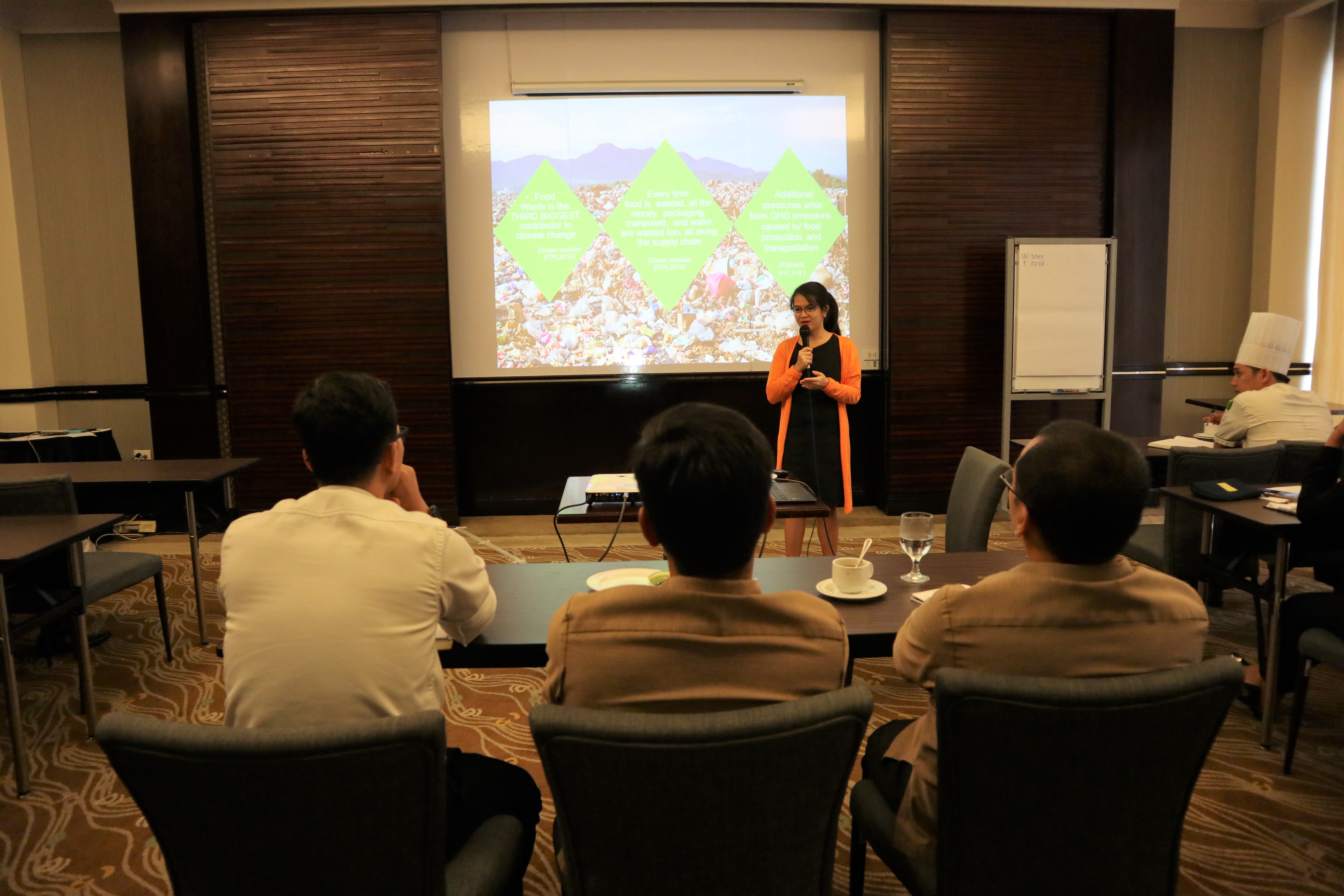
Alexa Jeanne Lasch, The Sustainable Diner project’s Sustainable Business Specialist, conducts Phase 2 of the Food Waste Management initiative in Taal Vista Hotel. Photo © Gabriel Villalon / WWF-Philippines
The food waste intervention action planning workshop started the same way at Taal Vista. This time, it was conducted by Alexa Jeanne Lasch, The Sustainable Diner project’s Sustainable Business Specialist. After analyzing the pre-service and post-service food waste data gathered, each property then held an action planning session where members of the staff identified possible food waste reduction interventions given the data and the pain points presented to them earlier, as well as their individual experiences in their own departments.
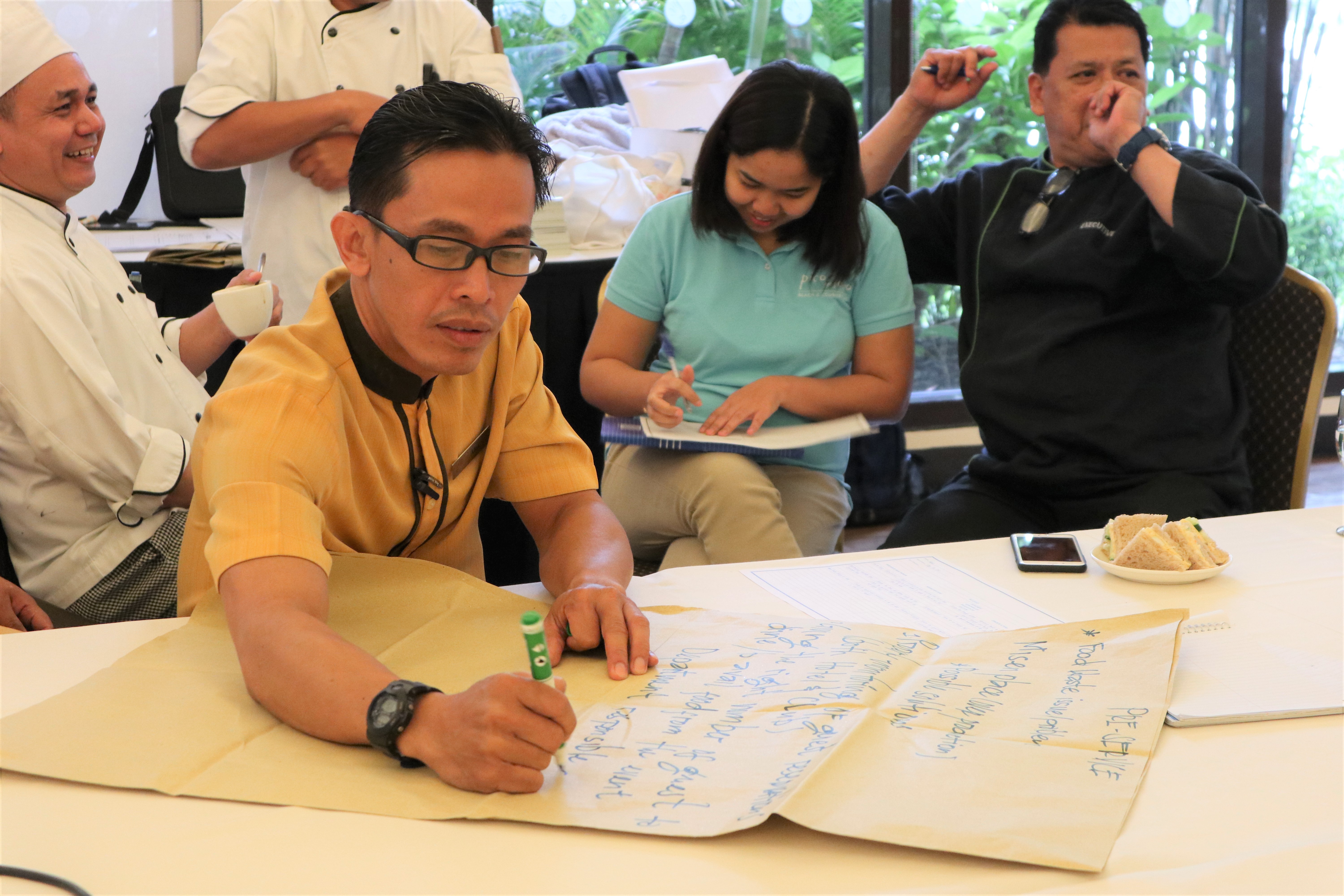
Employees from Pico de Loro writing down their suggested initiatives on how they can put into action their plans to improve food waste management in the property. Photo © Gabriel Villalon / WWF-Philippines
Both workshops ended by adding suggested interventions and best practices from the Fighting Food Waste in Hotels toolkit, from the food waste management initiative originally led by WWF US, in collaboration with the American Hotel and Lodging Association (AHLA), with the generous support from the Rockefeller Foundation.
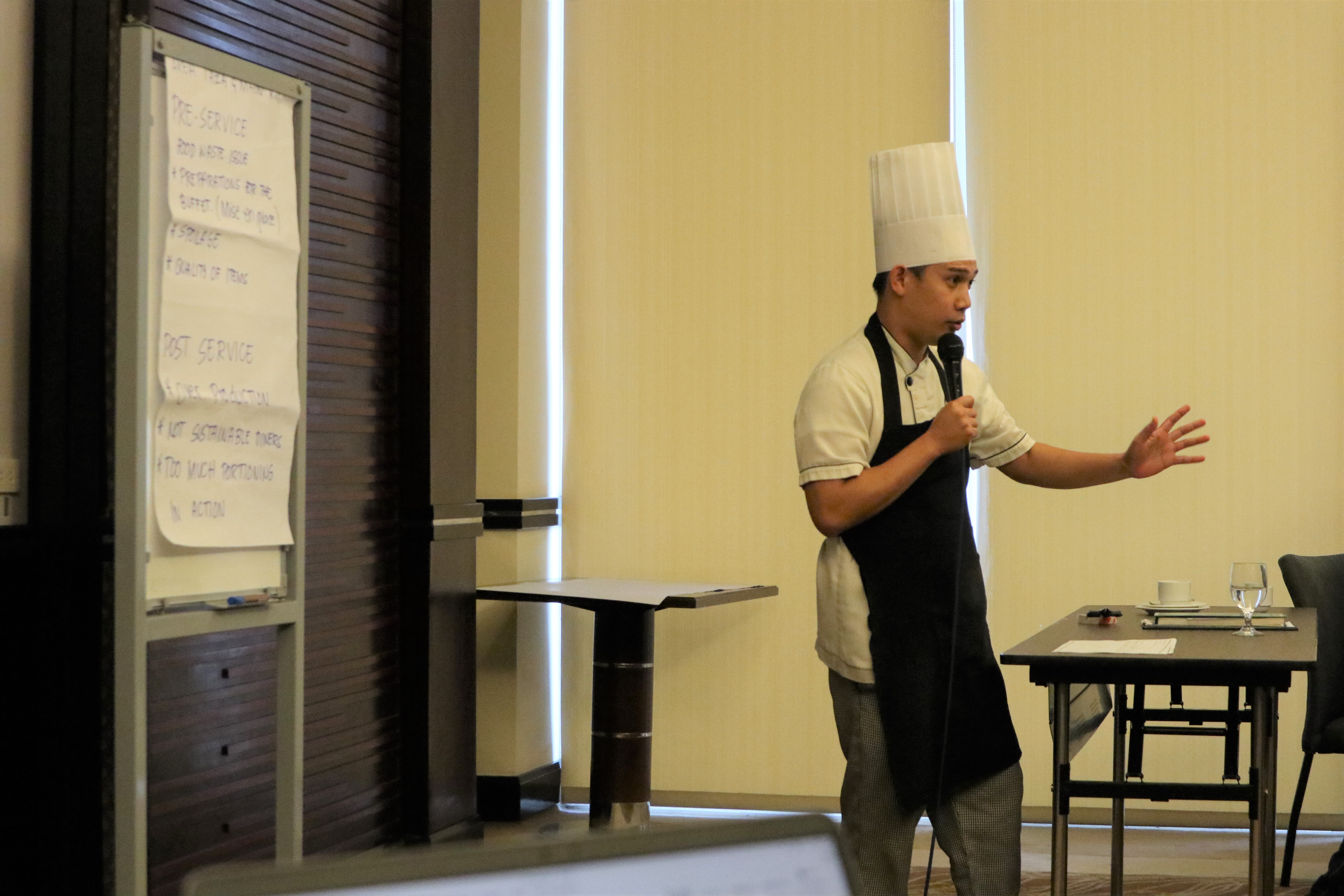
One of Taal Vista’s representatives from their Commissary Department presenting their group’s inputs and suggested interventions to the rest of the team. Photo © Gabriel Villalon / WWF-Philippines
In the succeeding weeks, food waste prevention and reduction are the main goals for both Pico De Loro and Taal Vista. With the support of The Sustainable Diner project, it is very possible to reduce the food waste problem in hotels and resorts in the Philippines!
The Sustainable Diner project, under WWF-Philippines’ Sustainable Consumption and Production, is part of the International Climate Initiative (IKI). The Federal Ministry for the Environment, Nature Conservation, and Nuclear Safety (BMU) supports this initiative on the basis of a decision adopted by the German Bundestag.
